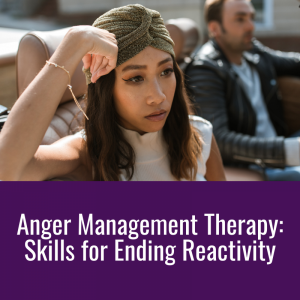Top Phrases That Doomed Couples Say
Top Phrases That Doomed Couples Say
If you’re wondering what might be these top phrases that doomed couples say, you’ll be surprised how many times you have heard them so far. Whether it’s from parents in your child’s school, your neighbors, or your colleagues at work, how someone talks and what they talk about tells a lot about their relationship and life in general.
For instance, couples that are trying to make you feel miserable, trying to make you live their lives, or putting you in the middle of their drama are some of the situations we’ll cover in this article. Words are a powerful weapon, yet they are also a great indicator of relationship quality.
Maybe you have an old friend and you’re worried about their partner not being the best choice for them or you don’t want to be near messy relationships. Whatever the reason might be, these phrases will help you understand when you should stop spending time with a couple that takes the fun out of every lovely dinner or barbeque party.
1. “This was the first time we fought in public.”
You’re at a great restaurant with this couple your spouse invited after a business meeting and as much as you were looking forward to it, the tension between the couple destroyed the entire night. They are sarcastically responding and interrupting each other until the moment when things get so heated that they start to fight loud in front of you and the entire restaurant.
After the fight, they will start apologizing and saying this was the first time they fought in public. They will show all the signs of embarrassment and ask you to forgive them. However, this type of couple rarely does only one show like this in their relationship and you might end up in the middle of another scene if you continue spending time with them.
2. “You have to have kids, it will fulfill your life just like it did to us.”
When will you get married? When will you two have kids? Why don’t you work on the second child so your kid doesn’t feel lonely?
How many times have you heard these questions from your family, distant relatives, and colleagues, and when a couple with kids starts asking these questions, they become even more frustrated. Many couples who others will only be happy if they do the same things they did are not happy at all.
These people rarely don’t know what happiness or fulfillment is because happiness can mean different things to different people. One person can be perfectly happy in a marriage with children, while another will feel more fulfilled with their career or having a vivid social life.
3. “You can do so much better.”
Although we’ve all been in one of those relationships where we know that the other person is not right for us, judging your new date just on their looks or the short amount of time a couple spent talking to your date is unacceptable. Mostly, this phrase will refer to the way someone looks or their profession, and doesn’t consider other. More relevant factors like the connection you two share, their emotional intelligence, the way they treat you, etc.
Many couples who believe that their status is the most important thing on the planet will try to get you in that game with them. They will advise you to spend too much money on clothes you can’t afford, go out only with people who are at your level or higher, go with them on luxury trips, and more. Yet, if this is not something you are looking for yourself, this type of comment might make you feel uncomfortable and the best thing would be just to leave with your date.
4. “Men/women here are difficult to date, you should try to find someone in more exotic countries.”
Don’t take dating advice from people who blame the entire culture when it’s difficult to find someone to click with. There is indeed nothing wrong with falling in love with someone from a different country, yet that isn’t the factor that will make someone a more desirable partner. If the person is interesting to you, it truly doesn’t matter if they are from your city, another country. Or even continent.
By following such advice, you are setting yourself up for failure. You don’t fall in love with someone’s culture, you fall in love with them as a person. If you haven’t been on a nice date for a while, the least you can do is not to listen to a couple who has been in your shoes long ago.
5. “We’re the nicest couple you’ll ever meet.”
Wow, how many times have you heard this one? Typically, those who will say they are the nicest couple or persons are the opposite of it in general. That said, it doesn’t mean they will convert to your worst enemies. It simply means that these people feed off impressing other people and not making real connections with them.
They will often lack social skills and emotional intelligence. So when talking to them each time, you might feel like they are not listening to you or don’t care about you. And probably, you are right. While you’re interacting with them, they are already scanning the room to find a new person to impress.
The Bottom Line
You will know you are talking to a doomed couple if, during the conversation. They are making you feel uncomfortable in any way. They can be passive-aggressive with a smile on their face and seem like they are trying their best to be your friends, yet something doesn’t feel right. You will often not know how to describe it or explain it to another person, and you will not have to. If you feel this way, it means that you are dealing with a doomed couple. So, the best thing to do would be to just leave and never put yourself in this type of situation anymore.
Get CONNECT now
Couples Communication Strategies
About Life Coaching and Therapy
Life Coaching and Therapy (LCAT) is a therapy and coaching practice that transforms our clients lives through our flexible. Multi-technique approach and pleasure-skills training provided by systematically-trained and licensed therapists!
 Get to know our founder and owner, Amanda Pasciucco, (a.k.a. The Sex Healer) PhD, Licensed Marriage and Family Therapist (LMFT), and an AASECT Certified Sex Therapist (CST) that has developed innovative therapy programs and therapy videos that get results.
Get to know our founder and owner, Amanda Pasciucco, (a.k.a. The Sex Healer) PhD, Licensed Marriage and Family Therapist (LMFT), and an AASECT Certified Sex Therapist (CST) that has developed innovative therapy programs and therapy videos that get results.
Our team of compassionate, licensed therapists and certified sex therapists help all clients who visit us for a variety of personal, relationship, intimacy and sex problems.
LCAT provides on-site appointments, as well as video chat and text therapy programs.
Learn more about how LCAT can help improve your life at What We Do.




















 New Paradigm Vision
New Paradigm Vision 














